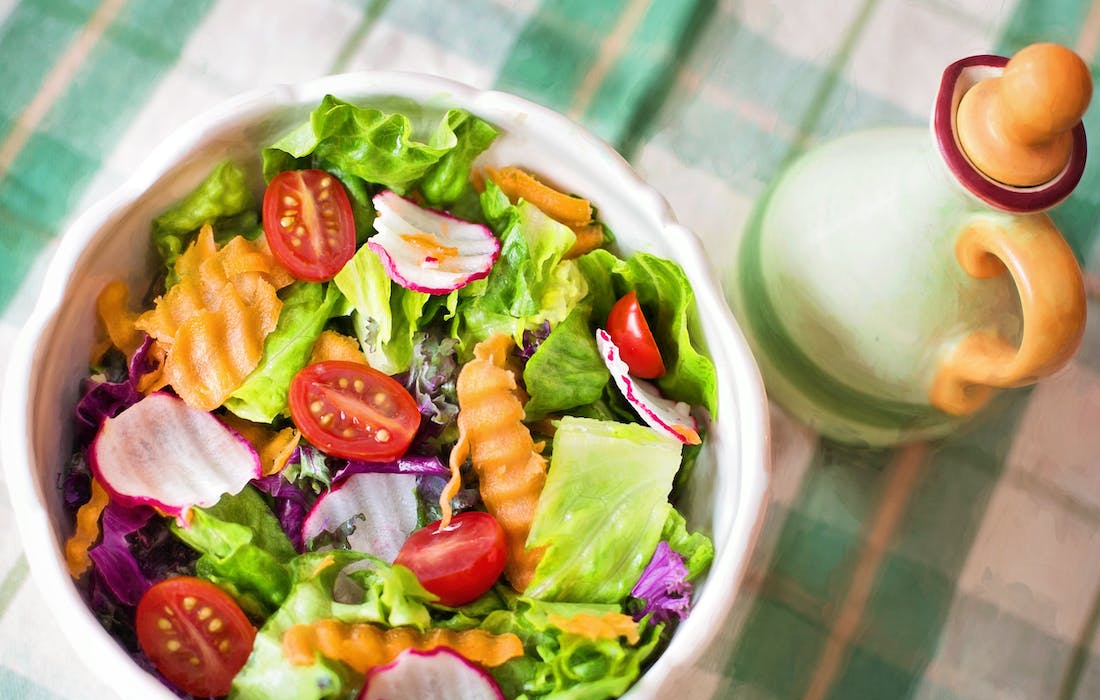Nutrition and Supplements
Following a Mediterranean Diet May Help Increase the Chances of Successful IVF
Research is ongoing about potential fertility treatments, including the use of in vitro fertilization (IVF). It’s unclear how following certain diets or consuming over-the-counter supplements may contribute to the chances that IVF will result in a healthy pregnancy.
A recent review published in Reproductive Biomedicine Online (RBMO) examined 27 studies to see how different nutritional therapies contributed to successful IVF.
Results of the review indicated that following a Mediterranean diet may increase the chances of successful IVF. In addition, DHEA, COQ-10, melatonin, myo-inositol, and omega-3 free fatty acids may improve IVF success in certain situations.
However, further research is required to understand more about how supplements and dietary interventions contribute to successful IVF.
In vitro fertilization (IVF) involves fertilizing an egg outside the body and then implanting the fertilized egg into the uterus. IVF may be an option for couples struggling to conceive. The end goal is a healthy pregnancy and live birth.
Whether or not IVF results in these endpoints depends on a number of factors. For example, women with endometriosis may have a lower chance of IVF being successful. Women under age 35 also have a higher probability of IVF success compared to older women.
The current review focused on nutritional interventions that women often can often undergo without a clinician’s prescription.
Diet itself may contribute to fertility problems. For example, diets containing high amounts of trans fats, refined carbohydrates, and added sugars may decrease female fertility. Thus, it makes sense that looking at how diet influences IVF results would also be a key area of interest when studying fertility.
This review examined 27 studies published between January 2015 and May 2023. The research was a systematic review looking at several nutritional supplements and their impact on IVF outcomes. The review further examined the benefits of dietary restriction and the Mediterranean diet.
The review excluded studies based on specific criteria. It focused on females rather than males in most of the research analysis.
The findings of the study suggested that certain supplements benefit IVF outcomes, while the usefulness of other supplements remains unclear.
For example, dehydroepiandrosterone (DHEA) and COQ-10 supplements may help women undergoing ovarian stimulation. Ovarian stimulation involves increasing egg production by the ovaries so the eggs can be retrieved and fertilized outside the body.
The review further found that taking omega-3 free fatty acids may benefit a few IVF outcomes. The review also suggests that the supplement melatonin may benefit IVF outcomes.
Still, more research is needed to determine which patients would most benefit from melatonin and what dose would be appropriate.
Women with polycystic ovary syndrome, a condition that can cause infertility, may also benefit from taking the supplement myoinositol, but more research is needed to understand proper dosing in this area.
Finally, the review also suggests that incorporating a Mediterranean diet may assist with successful IVF.
This review does have certain limitations. First, it only included studies from specific databases and only studies that met inclusion criteria, like being written in English. Future research could seek to include even more studies in the analysis.
The review also did not have a strict definition for “poor ovarian response,” which can make it harder to apply the results to clinical practice.
Since the review is of previously conducted studies, it’s also important to consider that each of the studies had its limitations that reduce the reliability and application of the findings. For example, one study supporting the incorporation of the Mediterranean diet included both men and women, making it harder to determine where the benefit comes from.
The review was also mainly conducted by one person, which can introduce the risk of potential errors in data analysis.
It may take time for any of the findings of this review to make their way into clinical practice as well. Those seeking to undergo IVF can be in close communication with specialists about nutrition and the use of supplements. Ideally, this can lead to choosing the most beneficial intake for the unique situation.
Sources:
Roger J. Hart. Nutritional supplements and IVF: an evidence-based approach. Published:December 19, 2023DOI:https://doi.org/10.1016/j.rbmo.2023.103770
Reproductive Medicine Online (2023). Following a Mediterranean diet may help increase the chances of successful IVF. MedicalNewsToday. Retrieved on December, 27 from: https://www.medicalnewstoday.com/articles/mediterranean-diet-may-help-increase-chances-successful-ivf
Photo by Jill Wellington from Pexels: https://www.pexels.com/photo/close-up-of-salad-in-plate-257816/

